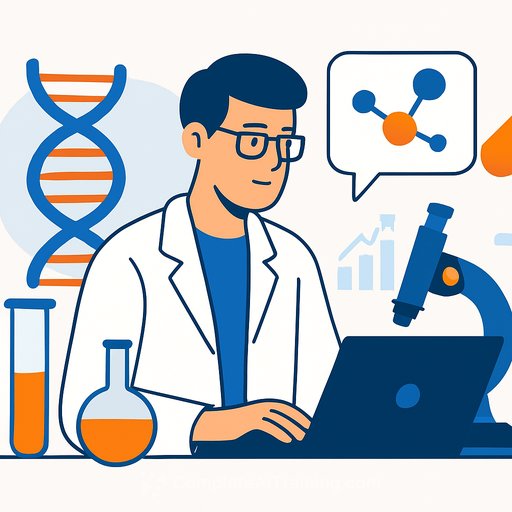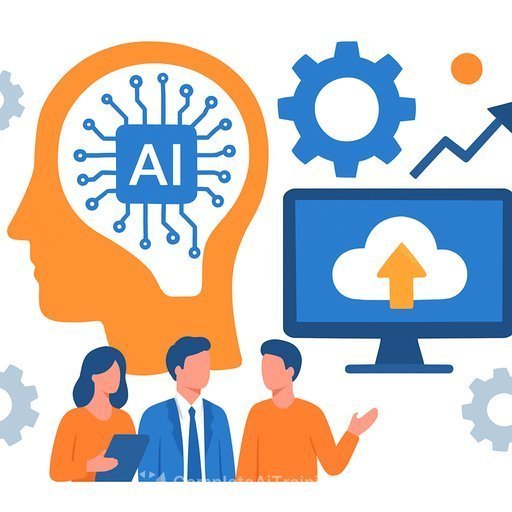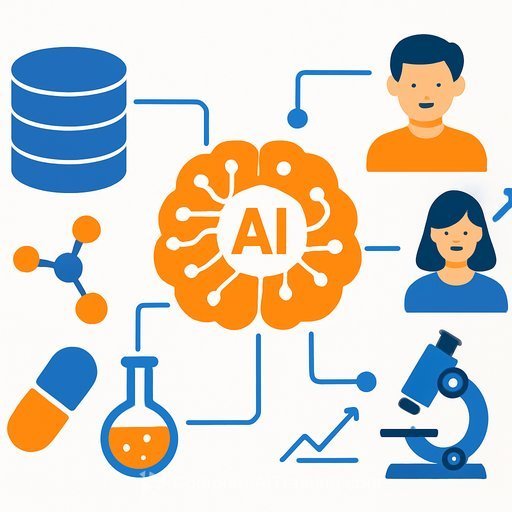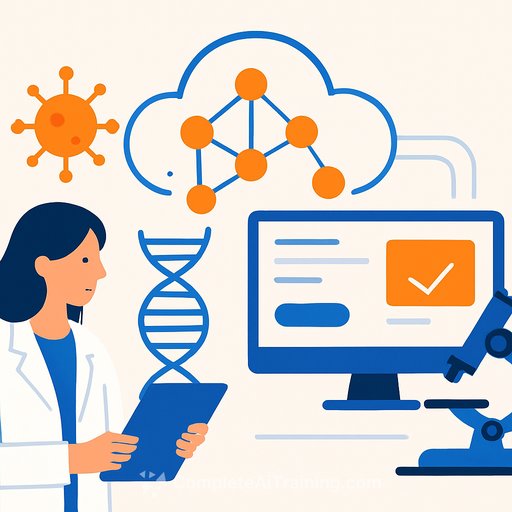Anthropic launches Claude for Life Sciences to accelerate R&D workflows
Anthropic introduced Claude for Life Sciences, a dedicated offering that brings its Claude models into the daily toolkit of biotech, pharma, and academic researchers. It's the company's first focused push into life sciences, aimed at supporting work from early discovery through translation and commercialization.
"Now is the threshold moment for us where we've decided this is a big investment area," said Eric Kauderer-Abrams, Anthropic's head of biology and life science. "We want a meaningful percentage of all of the life science work in the world to run on Claude, in the same way that that happens today with coding."
What's new
Anthropic's latest model, Claude Sonnet 4.5, is described as "significantly better" at life science tasks, including reasoning over lab protocols. The company's goal: move from helping with isolated tasks (like stats code or paper summaries) to supporting end-to-end workflows-hypothesis generation, study planning, data analysis, reporting, and regulatory documentation.
Anthropic is adding connectors to scientific tools, new "Skills," and an ecosystem of partners so Claude can fit into existing R&D environments.
What you can do right now
- Run literature reviews and extract key findings across large corpora
- Brainstorm study ideas and generate testable hypotheses with citations and rationale
- Write or review statistical analysis code, and check assumptions
- Analyze lab outputs, compare cohorts, and generate tables/figures
- Draft study reports and regulatory-ready narratives in minutes
- Collaborate across tools through connectors and shared workspaces
Ecosystem and integrations
Anthropic is working with core platforms and content providers across life sciences so teams can stay within their established workflows:
- Benchling - unified R&D data and workflows for 1,300+ biotech orgs
- PubMed - access to millions of biomedical papers and studies (NIH/NCBI)
- BioRender - vetted scientific icons and templates for figures
- Wiley Scholar Gateway - structured access to peer-reviewed content
- Synapse.org - collaborative data sharing and analysis for public/private projects
- 10x Genomics - single-cell and spatial analysis workflows (10x Genomics)
"AI in R&D only works through an ecosystem," said Ashu Singhal, co-founder and president of Benchling. Anthropic's approach emphasizes access, governance, and interoperability.
Early results and claims
Anthropic showed a demo where a scientist analyzed lab data, produced a comparison table of key differences, and generated a report suitable for regulatory processes-all in a single session. The company says this work can take minutes instead of days.
Kauderer-Abrams emphasized responsible use, stating the system won't support development of weapons. He also noted a long-term aim to compress clinical timelines, citing reductions from years to weeks in specific processes. According to reporting, Novo Nordisk cut clinical study documentation from over 10 weeks to about 10 minutes using Anthropic's tools, and Sanofi says most employees use Claude daily.
Access and availability
- Available via Claude.com and the AWS Marketplace
- Google Cloud Marketplace availability is coming soon
Practical considerations for labs and sponsors
- Validation: Benchmark model outputs on your own datasets before broad rollout
- Governance: Enforce access controls, audit trails, and versioning for regulated work
- Quality systems: Map AI-assisted steps to SOPs, GxP, and documentation standards
- Security: Confirm data residency, encryption, and vendor risk posture with IT
- Human oversight: Keep scientific review and sign-off in the loop for critical decisions
Why this matters for researchers
Most teams already use AI for single tasks-summaries, code snippets, figure drafts. The shift here is integration: bringing literature, experimental data, and reporting into one place with tighter connections to the tools you already use. If it holds up in production, it removes administrative drag so you can spend more time designing better experiments and clinical protocols.
Resources
- Search the biomedical literature: PubMed
- Want structured training on Claude in research workflows? See our Claude certification for scientists and analysts
Your membership also unlocks:






